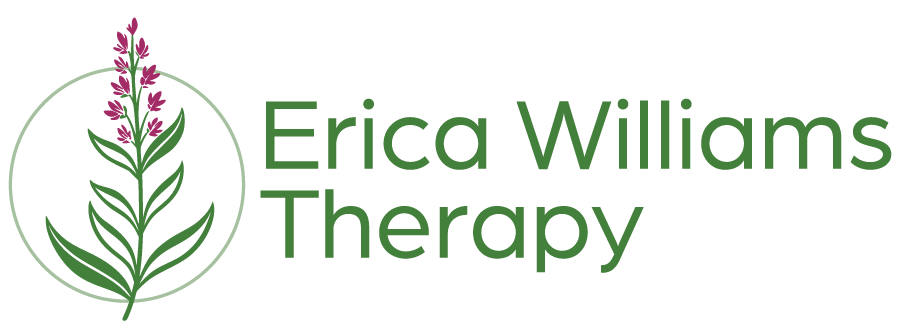
Therapy
Choosing to Deeply Care for Yourself
I know it can feel anywhere from nerve-wracking to downright demoralizing when trying to find a therapist. We may often procrastinate seeking support until we’re in a state of overwhelm or nearing total shutdown, which can make the process feel even more taxing. I invite you to take a slow, settling breath in this moment...then gently remind yourself that you’ve already done arguably the hardest part—choosing to deeply care for yourself.
Whether you are a seasoned counseling consumer or are bravely venturing into therapy for the very first time, you are welcome here. I believe that we are all in a state of becoming, awakening to the awareness of our essential loving nature that is always present, regardless of our current thoughts, feelings, behaviors or life circumstances.
The very good news is that whatever it is you are feeling, not feeling, or trying to stop feeling, it really is O.K. Yes, it is usually incredibly uncomfortable to turn toward what isn’t feeling good and boldly note what is no longer working well in our relationships, our work, our bodies and our thoughts, yet these difficult sensations are precious keys to our inner development and lasting wellbeing. I can assure you that you do have the inner resources to effectively respond to your current situation, even if said resources are not visible to you right now.
Together we will sort through the layers of conditioned ways of thinking, feeling and relating that you have likely held onto for good reason, usually because your survival depended on it, until now. Discovering, practicing and ultimately mastering new ways of being and relating to yourself are available to you. Therapy can be your entry point.
Who I Work With
I work with adults and adolescents who experience symptoms of anxiety and depression, challenging life transitions, relationship difficulties and those dealing with the aftermath of trauma. Healing, growth and thriving in a life filled with purpose and enjoyment is always possible. I am here for you.
My therapeutic approach blends principles and practices of Mindfulness, Somatic Experiencing, Parts Work, Acceptance and Commitment Therapy, and Spiritual Psychology. Depending on what concerns we are addressing and what style most resonates with you, I may draw on the spirit of one or more of these modalities.
I believe all consumers of mental health care deserve access to information about the care they are seeking and receiving, so I invite you to explore the information below to get a beginning sense of how we might work together.
-
In simple terms, mindfulness is the practice of conscious awareness. Although it has become integral to multiple contemporary Western psychotherapy modalities and self-help techniques in the past fifty years, mindfulness originates from ancient Eastern wisdom traditions such as Hinduism, Buddhism, and yoga, dating back to BCE times. Vietnamese Zen Master, poet and spiritual teacher Thich Nhat Hanh was a leader in bringing mindfulness to the West in the 1970’s. Thich Nhat Hanh said, “Mindfulness is a kind of energy that we generate when we bring our mind back to our body and get in touch with what is going on in the present moment, within us and around us.”
Jon Kabat- Zinn, Ph.D., an American Professor of Medicine emeritus at the University of Massachusetts Medical School and the founder of the 8-week mindfulness-based stress reduction (MBSR) program says, “The core invitation of mindfulness is for you to befriend yourself. That means recognizing and inhabiting your own intrinsic wholeness and beauty in the only moment any of us ever has—namely this one.”
https://plumvillage.org/mindfulness/mindfulness-practice
-
Somatic Experiencing (SE)™ is a body-oriented modality that helps heal trauma and other stress disorders. Developed by Peter A. Levine, Ph.D., it is the result of the multidisciplinary study of stress physiology, psychology, ethology, biology, neuroscience, indigenous healing practices, and medical biophysics, with more than 45 years of successful application (https://traumahealing.org/).
SE is a “bottom up” vs “top down” approach to healing, meaning it asserts that we cannot think our way out of traumatic experiences. Rather, SE claims that the essential key to resolving the effects of trauma and chronic stress lies in the body and the nervous system as these are the places where we first register traumatic events. SE supplies an intelligent response as to why animals in the wild are rarely traumatized even though their lives are routinely threatened. Somatic Experiencing offers a science-backed pathway to support humans in restoring equilibrium to the nervous system, thereby healing trauma and promoting lasting health. In the introduction to his book Waking the Tiger, Peter Levine writes, “… Trauma is a fact of life. It does not, however, have to be a life sentence.” *Note: I am currently working toward my Somatic Experiencing Professional certification.
-
Parts Work is shorthand for a therapeutic lens that conceptualizes the human being as a whole and complete person made up of many individual aspects or “parts” of Self. Parts Work encourages us to build new relationships with the aspects of ourselves that may have been shut down, cast aside, or overly relied upon without our conscious awareness, often in ways that no longer serve us.
Fundamental to this approach is the understanding that our goal in therapy is not to delete any one aspect of ourselves, but rather to offer all fragmented parts adequate attention, compassion and assistance to bring them into balance for the highest good of our core Self, the One that witnesses all. Individual therapies like Internal Family Systems (IFS), created by Dr. Richard Schwartz, LMFT, in the 1980s and Gestalt Therapy are based in this school of thought. *Note: while I have received continuing education in Parts Work that informs my approach in counseling sessions, I am not an IFS Institute-certified clinician at this time.
-
Acceptance and Commitment Therapy challenges us to let go of the narrative that some emotions are “good” and others are “bad” and need to be avoided. ACT focuses on acceptance, mindfulness, and values clarification to increase psychological flexibility and inspire lasting behavior change. This therapeutic modality encourages us to accept the whole of our human experience and build a rich, meaningful life by aligning our actions with our values. ACT was developed in the 1980s by psychologist Steven C. Hayes, PhD
https://www.psychologytoday.com/us/therapy-types/acceptance-and-commitment-therapy
-
Spiritual Psychology is the study and practice of the art and science of conscious awakening. Foundational to this therapeutic perspective is the message found within Pierre Teilhard de Chardin’s statement, “We are not human beings having a spiritual experience. We are spiritual beings having a human experience.” Drs. Ron and Mary Hulnick, trained professional counselors at the master’s and doctoral level and former President and Vice President of the University of Santa Monica, have explained that if we delve into the meaning of the word psyche, we will find phrases such as “breath, principle of life, soul.” But if we explore the definition of the word psychology, we’ll see “the science of mind and behavior.” Somehow, in the translation from essence to clinical practice, Drs. Ron and Mary Hunick observe, the most important aspect of “psyche” has been lost. Spiritual Psychology seeks to restore the spiritual dimension to the heart of authentic psychological inquiry. This modality offers practical tools and skills, such as Compassionate Self Forgiveness, Heart-Centered Listening, Free-Form Writing, Creating Ideal Scenes, Reframing Issues as Blessings and many more. Spiritual Psychology is inclusive of any and all belief systems, spiritual and/or religious affiliations are neither assumed nor imposed.
https://www.universityofsantamonica.edu/why-usm/spiritual-psychology/#gsc.tab=0
https://www.universityofsantamonica.edu/what-is-spiritual-psychology/#gsc.tab=0
The first step is simple.
You’re welcome to schedule a 15-minute complimentary phone call so we can chat a little bit about what has been going on for you and see if I might be a good fit as your therapist at this time in your life. If you feel nervous about scheduling, that’s completely understandable! And, I have a sense it’s a reliable clue signaling that you’re right on track.
“There is more wisdom in your body than in your deepest philosophy.”
— Friedrich Nietzsche


